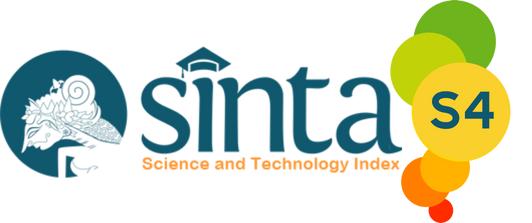Development of a Minimum Competency Assessment Instrument for Reading Literacy Containing Sasak Local Wisdom in Class V of 33 Mataram State Elementary Schools
DOI:
https://doi.org/10.29303/goescienceed.v5i3.362Keywords:
Minimum Competency Assessment Instrument, Sasak Local Wisdom, Reading LiteracyAbstract
This research aims to develop a minimum competency assessment instrument for reading literacy containing Sasak local wisdom in class V at SDN 33 Mataram. This research is a type of Research and Development (R&D) research with five stages. Analyze produces an analysis of the needs of students in schools related to assessment instruments that have not yet reached the measurement of reading literacy competency. Design, namely designing assessment instruments by making grids, writing stimuli, writing question items and answer keys, work instructions, and scoring guidelines. Development, namely developing products through the testmoz website and carrying out expert validation. Implementation by testing assessment instruments to determine validity, reliability and practicality and applying them to real classes. Evaluation, testing product effectiveness. The data collection techniques used were interviews, questionnaires, documentation and tests. This research was conducted at SDN 33 Mataram using evaluation and language expert validation sheet instruments, teacher and student response questionnaires, as well as reading literacy assessment instruments. The results of the research show that the minimum competency assessment instrument for reading literacy containing Sasak local wisdom received a percentage of 94.2% from evaluation experts, a percentage of 100% from language experts, a percentage of 97.8% with very practical criteria from teacher responses, a percentage of 91.5% with criteria very practical from the students' responses, getting the results of 23 valid and reliable questions from the results of the analysis of the questions after the trial. Testing effectiveness with a one sample T-test using SPSS 26 with a significance value of 0.000<0.05 means there is a difference in the average student score and the test value. Therefore, it can be concluded based on the research results that the development of a minimum competency assessment instrument for reading literacy containing Sasak local wisdom in class V can be declared valid, reliable, practical and effectively used in measuring students reading literacy abilities.
References
Ardhana, Ivan Ashif. 2020. “Penggunaan Tes Online ‘Testmoz’ Terintegrasi Dengan Googleclassroom Sebagai Alternatif Alat Pembelajaran Daring.†Andragogi: Jurnal Diklat Teknis Pendidikan Dan Keagamaan 8(2):485–97. doi: 10.36052/andragogi.v8i2.182.
D.M. Andikayana, N. Dantes, and I.W. Kertih. 2021. “Pengembangan Instrumen Asesmen Kompetensi Minimum (Akm) Literasi Membaca Level 2 Untuk Siswa Kelas 4 Sd.†Jurnal Penelitian Dan Evaluasi Pendidikan Indonesia 11(2):81–92. doi: 10.23887/jpepi.v11i2.622.
Farahiba, Ayyu Subhi. 2022. “Pengembangan Instrumen Tes Literasi Peserta Didik Pada Materi Teks Anekdot.†Jurnal Dimensi Pendidikan Dan Pembelajaran 10(2).
Hidayati, Vivi Rachmatul, Ida Ermiana, Linda Feni Haryati, Awal Nur Kholifatur Rosyidah, and Ashar Pajarungi Anar. 2023. “Sosialisasi Pentingnya Pembelajaran Literasi Dan Numerasi Sebagai Upaya Pencegahan Learning Loss Akibat Pandemi.†Jurnal Altifani Penelitian Dan Pengabdian Kepada Masyarakat 3(1):148–54. doi: 10.25008/altifani.v3i1.344.
Ida, Farida Far, and Anna Musyarofah. 2021. “Validitas Dan Reliabilitas Dalam Analisis Butir Soal.†Al-Mu’Arrib: Journal of Arabic Education 1(1):34–44. doi: 10.32923/al-muarrib.v1i1.2100.
Pratiwiningtyas, Bekti Nanda, Endang Susilaningsih, and I. Made Sudana. 2017. “Pengembangan Instrumen Penilaian Kognitif Untuk Mengukur Literasi Membaca Bahasa Indonesia Berbasis Model Pirls Pada Siswa Kelas IV SD.†Journal of Educational Research and Evaluation 6(1):1–9.
Purwati, P. D., A. Faiz, and A. Widiyatmoko. 2021. “Asesmen Kompentensi Minimum (AKM) Kelas Jenjang Sekolah Dasar Sarana Pemacu Peningkatan Literasi Peserta Didik.†SOSIO RELIGI: Jurnal Kajian Pendidikan Umum 19(1):13–24.
Qurniawan, M. F., Nurmawati, I., & Sahlan, M. (2023). Pengembangan Instrumen Penilaian Berbantuan Wordwall pada Materi Sistem Koordinasi untuk Siswa Kelas XI IPA. Bioscientist : Jurnal Ilmiah Biologi, 11(2), 1953. https://doi.org/10.33394/bioscientist.v11i2.9259
Sari, Via Putika, and Ika Candra Sayekti. 2022. “Evaluasi Pelaksanaan Asesmen Kompetensi Minimum (AKM) Pada Kompetensi Dasar Literasi Membaca Peserta Didik Sekolah Dasar.†Jurnal Basicedu 6(3):5237–43. doi: 10.31004/basicedu.v6i3.2907.
Selaras, Ganda Hijrah, Yuni Ahda, Heffi Alberida, and Tri Putri Wahyuni. 2019. “The Validity and Reliability of The Instrument Assessment of Higher Order Thinking Skill on The Biological Scope Materials.†Bioeducation Journal 3(2):151–58. doi: 10.24036/bioedu.v3i2.242.
Shofiah, Nurul, Fakultas Psikologi, Universitas Islam, and Negeri Malang. 2017. “Pertimbangan Pemilihan Teks Bacaan.†(1):285–96.
Sufyadi, Susanti, Lambas, Tjaturigsih Rosdiana, Fauzan Amin Nur Rochim, and Sandra Novrika. 2021. “Pembelajaran Paradigma Baru.†Badan Penelitian Dan Pengembangan Dan Perbukuan 2021 1–6.
Zulaiha, Rahma. 2012. Analisis Soal Secara Manual. Jakarta: PUSPENDIK Jakarta.
Downloads
Published
How to Cite
Issue
Section
License
Copyright (c) 2024 Jurnal Pendidikan, Sains, Geologi, dan Geofisika (GeoScienceEd Journal)

This work is licensed under a Creative Commons Attribution-ShareAlike 4.0 International License.







